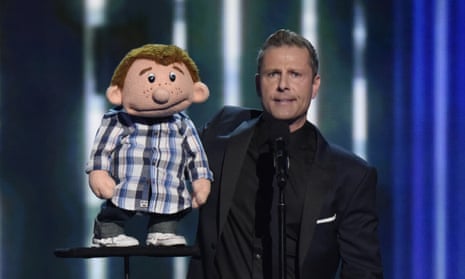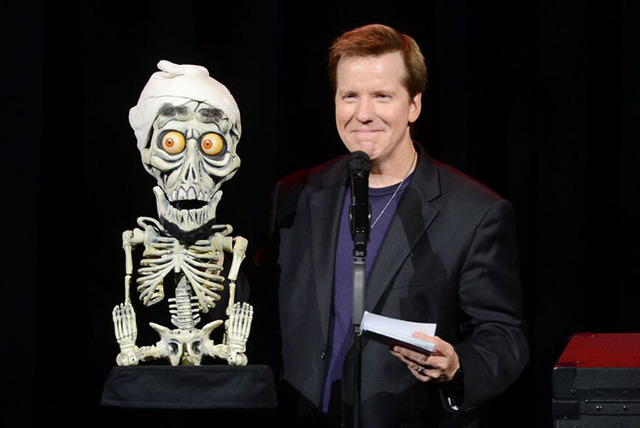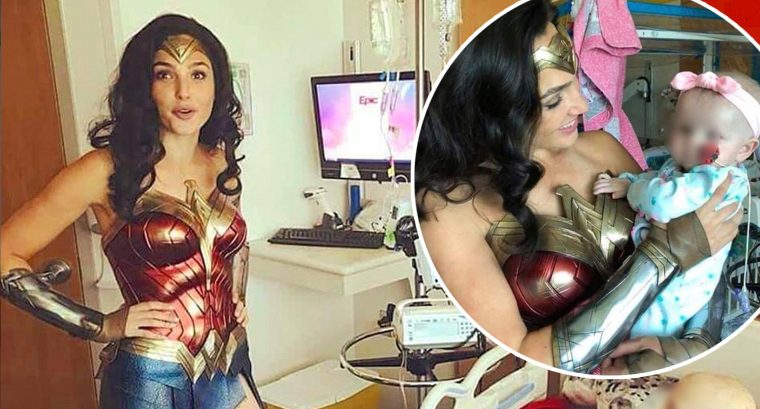
He began his career in the pubs and working men’s clubs of the north of England, jostling with bingo and karaoke to get any stage time. But now the British ventriloquist Paul Zerdin has become an international celebrity after winning America’s Got Talent with his puppet trio.
The 43-year-old, who comes from Wimbledon, south London, said he was still reeling from his win on the talent contest, which draws an audience of millions and comes with prize money of $1m (£640,000).
“It feels kind of surreal, really,” he said. “When it came down to the final two I was completely ready to congratulate the comedian Drew, who I was up against, so when they said my name, my heart skipped a beat and I was filled with a mixture of exhaustion, jetlag and euphoria. I’m bowled over by the whole thing.”

Zerdin has been performing ventriloquism for more than 25 years. As a child, aged eight, he was given a box of magic tricks and then, after leaving school with no exams under his belt, became a professional magician. To develop an act that would set him apart he set about learning how to master ventriloquism properly.
Part of the prize for winning Britain’s Got Talent is an appearance on the Royal Variety Performance. But, having already performed on the show three times since 1997, Zerdin said he decided that America’s Got Talent would be more of a challenge and would also allow him to audition “then sneak back home and nobody would be any the wiser”.
However, after his first audition was a rousing success greeted with a standing ovation from the judges and audience, Zerdin’s appearance on America’s Got Talent filtered back to the UK through social media.
“It spurred me on and made me think I could actually go quite far with this,” said Zerdin. “Though I never imagined I’d get all the way to the final or even win it.”
He said his time working on cruise ships had also given him the confidence to know he could make both British and US audiences laugh, and cites both The Muppets and Sesame Street as a huge influence on his show.
He had a week to develop his finale before performing it on Tuesday night. The show featured all three of his characters – Sam, Grandpa Albert and Baby – and Zerdin said it had been difficult to cram everything he could do into just two minutes. By introducing three different voices and animatronics into his performance he had been “trying to introduce something different into ventriloquism and play around with the art form a little bit, move it on”.
After his performance, Howard Stern, one of the judges, said: “There’s a reason Paul breezed through every single time he came on, because he is a master at what he does … He’s taking the art of ventriloquism to new heights.” The former Spice Girl Mel B, another of the judges, agreed, calling him “flawless”.
As the winner of America’s Got Talent Zerdin now has the opportunity to headline his own show at the Planet Hollywood hotel in Las Vegas next month. He said he already had the material written from previous tours around the UK.
The key to successful ventriloquism, he suggested, came down simply to keeping audiences amused. “The most important thing is that you’ve got to be funny, you’ve got to be entertaining. You can be technically the greatest ventriloquist in the world but if you’re not funny then you’re just a bloke standing on stage with or without a doll talking to yourself.”
Zerdin is the second ventriloquist to win America’s Got Talent. Terry Fator, a Texan, who won in 2007, went on to have his own Las Vegas residency at the Mirage hotel, worth a reported $100m over five years.

The free press is under attack from multiple forces. Media outlets are closing their doors, victims to a broken business model. In much of the world, journalism is morphing into propaganda, as governments dictate what can and can’t be printed. In the last year alone, hundreds of reporters have been killed or imprisoned for doing their jobs. The UN reports that 85% of the world’s population experienced a decline in press freedom in their country in recent years.
Last week marked the 30th annual World Press Freedom Day, a day for everyone to reflect on the importance of free expression as fundamental for all other rights. It is also an opportunity to pledge support for independent media – because without a robust and free press, a healthy democracy is impossible.
As you’re joining us today from Vietnam, we hope you will consider marking this day by supporting the Guardian. Despite the financial challenges plaguing the media industry, we’ve decided to keep our journalism paywall-free, because we deeply believe everyone has the right to access high-quality, fact-checked reporting. And we maintain our independence thanks to generosity from readers all over the world, who understand that supporting the free press is an investment in an informed and empowered public.
Unlike many others, we have no billionaire owner – this helps us maintain the freedom to fearlessly chase the truth and report it with integrity. Your support will allow us to continue to work with trademark determination and passion to bring you journalism that’s always free from commercial or political interference.
We also encourage you to support one of the many, smaller independent news organisations around the world. Over the years, we’ve collaborated with teams who are often publishing quality reporting in the face of great adversity. We have shared our expertise with them, helping to start and grow their own reader funding models. If this interests you, find out more about our work with outlets in Russia, Belarus, Ukraine, Turkey, Hungary and beyond.
Today we ask you to power Guardian reporting for the years to come, whether with a small sum or a larger one. If you can, please support us on a monthly basis from just $2. It takes less than a minute to set up, and you can rest assured that you’re making a big impact every single month in support of open, independent journalism. Thank you.








